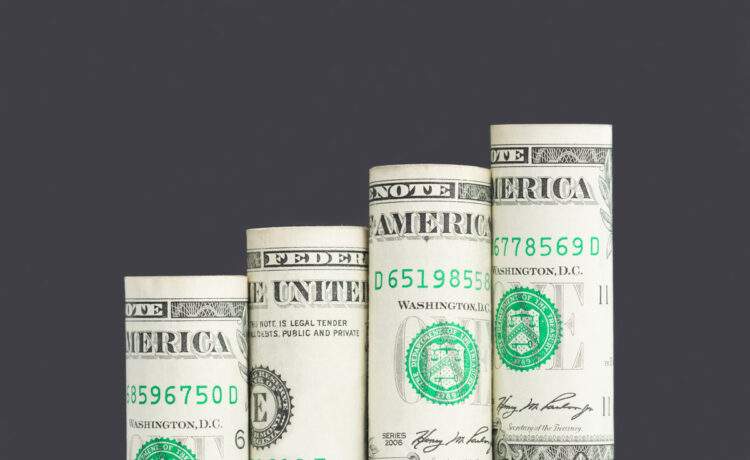These top stocks can significantly increase your passive income.
Holding stocks of companies that make regular cash payments to shareholders can take the sting out of market volatility. Here are two strong businesses that have been around for decades and currently pay dividend yields that are at least three times the S&P 500 average of 1.32%.
1. Realty Income
Realty Income (O 0.57%) owns more than 15,000 real estate properties in the U.S. and Europe. It partners with some of the largest companies in the world, including Walmart and FedEx, to open physical locations and expand their businesses.
With higher interest rates pressuring the real estate market right now, the stock is trading 26% off its previous high, which has sent the trailing-dividend yield above 5%.
Realty Income was founded in 1969 and has paid a monthly dividend for 54 consecutive years. It operates as a real estate investment trust (REIT), which means it must distribute at least 90% of its taxable income to shareholders. It currently pays a monthly dividend of $0.263 per share, bringing its forward yield to 5.22% — nearly four times the S&P 500 average.
Of course, the dividend is only as safe as the resiliency of the company’s property portfolio. On that note, Realty Income only acquires real estate that its clients consider important to the success of their business, and it also seeks to partner with companies that are industry leaders that benefit from a competitive advantage.
These factors explain why Realty Income has paid a dividend for so long and why it has delivered outstanding returns to shareholders. Over the last 30 years, the stock delivered a compound annual return of 13.5%, and it still has opportunities to grow. Management sees tremendous opportunities in Europe — an addressable market worth $8.5 trillion. It’s also starting to make investments in data-center properties, given the growing investment in expanding technology infrastructure for artificial intelligence (AI).
2. Kraft Heinz
Warren Buffett‘s Berkshire Hathaway has held a large stake in Kraft Heinz (KHC 1.26%) for several years. Berkshire originally invested in Kraft Foods more than a decade ago before it merged with H.J. Heinz in 2015. Buffett has favored strong consumer brands throughout his career, which is a good reason for investors to take advantage of Kraft’s high-dividend yield.
The stock has been flat over the last year, as sales are under pressure amid a weak consumer-spending environment. Kraft Heinz reported a decline of 2.4% year over year in adjusted sales in the second quarter.
Most importantly, Kraft Heinz continues to generate plenty of cash to fund its dividend. In the first half of 2024, its free cash flow grew grew 9% year over year to $1.2 billion, so a temporary sales decline is not going to impact its dividend payments.
The shares currently pay a quarterly dividend of $0.40 per share, which brings the forward-dividend yield to 4.62%. The company paid 66% of its free cash flow in dividends over the last year, and management’s recent efforts to improve its capital efficiency should continue to produce healthy streams of free cash flow to reinvest in growth opportunities, particularly emerging markets, and pay dividends.
The stock could offer upside once consumers are in a better spending position. The shares trade at a low forward price-to-earnings (P/E) ratio of 11. The stock could appreciate by at least 30% if the market decides to award the company a forward P/E of 15, which would still be below the S&P 500 average.
John Ballard has no position in any of the stocks mentioned. The Motley Fool has positions in and recommends Berkshire Hathaway, FedEx, Realty Income, and Walmart. The Motley Fool recommends Kraft Heinz. The Motley Fool has a disclosure policy.

















